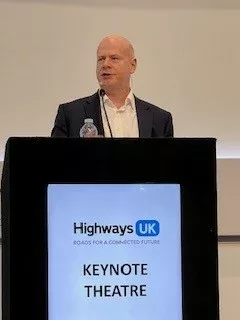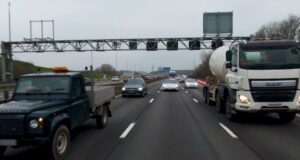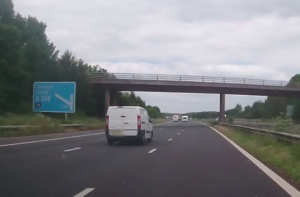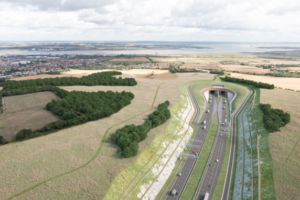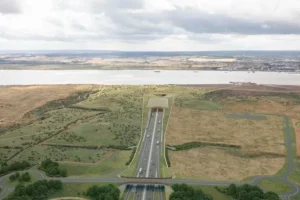The Chief Executive of National Highways has told a packed auditorium at Highways UK that there will be no announcement of new roads in the next Road Investment Strategy, RIS3, and that this is now a time for “rebuilding, not road building,” to help our country to grow.
In his keynote address at the major highways and transport exhibition and conference, Nick Harris commented on how “a lot has happened since we met last year,” but that his company is only working on one truly new road scheme, the Lower Thames Crossing, while everything else consists of replacing or improving parts of the network.
“The contents of RIS3 are still under discussion, but while major roadbuilding is waning, the need to renew and maintain our existing network is growing,” he said. “Most of our motorways were built in the 1960s and 1970s and need systematic replacement so we can keep our network safe and of the quality our customers expect.”
But Mr Harris pointed out that repairing and replacing existing road surfaces is difficult and that it is “often simpler and quicker to build a new structure than to renew an existing one.” He added “At the same time we have to safely accommodate traffic using the structure that’s being worked on.”
Mr Harris added that growing traffic volumes place greater demands on road maintenance, and called for more intelligent asset management, and that he’s working with other transport bodies to move passengers and freight to other modes where possible, to help economic growth everywhere in the country.
“Our recently published Connecting the Country long-term vision shows that in 2050 roads will still be the backbone of Britain’s integrated transport system,” he continued, adding that “They may well look similar to today’s roads, but closer inspection will reveal the use of new surfacing materials and the recycling of old materials,” before talking about verges and unsurfaced land delivering carbon capture, and that the roads of 2050 will feature “streamlined technology” to “improve safety, reduce costs and streamline systems”.
On decarbonisation, Mr Harris talked about having to hit some “sobering milestones” and pointed to the existing work to accelerate the availability of EV chargers on his network, and competitions to capture new ideas to help hit Net Zero in the way National Highways maintains and builds the network. He also said multi-modal travel was ‘important’ to National Highways, working with a number of partners to help deliver different ways to travel.
He touched on smart motorways, pointing out: “If you listen to anecdotes about road safety it’s easy to forget that motorways – including so-called smart motorways – are our safest roads. Our motorways rank just behind Sweden and Finland for safety across Europe,” before adding “we’re continuing to strive for zero harm on our roads,” but that there is “still a lot of work for us to do in making road users feel safe – closing the gap between perception and reality.”
Concluding his speech, Mr Harris said “Eight years after our formation we’re well into our journey, evolving from being a road builder and operator to being a service provider, committed to making road transport safer, more reliable and ready for the future,” and talking about rebuilding rather than road building he explained “That means moving from being primarily a civil engineering organisation to one with a growing focus on customer service.
“It’ll take time to fully transform public perceptions of us as a company and of the entire highways sector,” he said. “But, as you’ll see here over the next two days, things have changed. And are continuing to do so.”
You’ll be able to hear Nick Harris on today’s Highways Voices podcast from Highways UK, available around 4pm via the Highways News and Highways UK websites, and the Highways UK app.
(Picture – Highways News)



